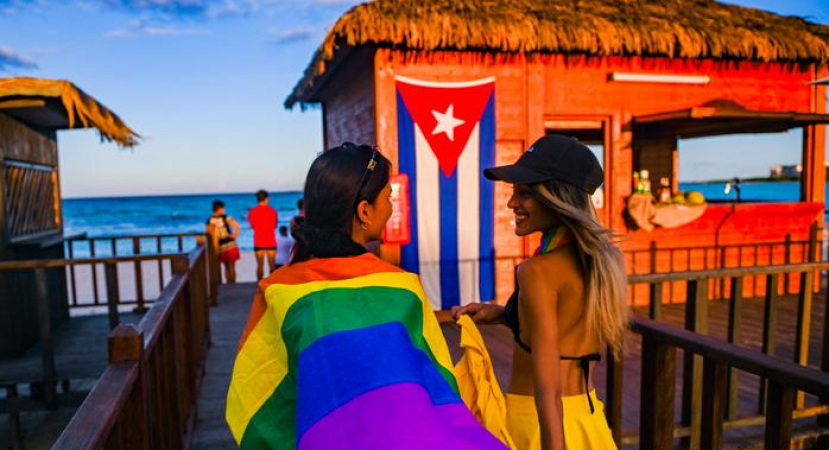
Havana: In a historic referendum, Cuba will decide on Sunday whether to legalize same-sex unions, adoption, surrogacy and give more rights to non-biological parents.
The Communist government's new family code would mark a significant change in Cuba, where matchmaking culture is strong and the LGBTQ community was abandoned by the authorities in the 1960s and 1970s.
The referendum, which will be voted on by more than eight million Cubans over the age of 16, will be in the midst of the country's worst economic crisis in 30 years, and experts say it will provide citizens an opportunity to express their disapproval. Can do. Of the Government.
If adopted, a law in force since 1975 would be replaced by a new family code that defines marriage as a union between two people rather than as a union between a man and a woman.
Did US gave financial aid to Pakistan to take revenge on India?
It will also support the rights of children, the elderly and people with disabilities, and allow surrogate pregnancies as long as there is no exchange of money.
According to President Miguel Diaz-Canel, the Family Code prioritizes the respect of the people "for each [person] and for all".
Polling station timings are from 7:00 am to 6:00 pm local time.
Over the past 20 years, the government's position on homosexuality has undergone a significant change, and "yes" campaigns on television and social media have received significant government support.
Retired Reynaldo Orgles, 67, said: "I could care less if two men marry or two women marry, so I don't have that prejudice." Despite coming from a different era, I don't have that prejudice.
Native American leaders call on companies and banks to stop funding deforestation
Following criticism from the Catholic and Evangelical churches in 2019, the government attempted to include same-sex marriage rights in the country's new constitution, but abandoned the effort.
The Conference of Bishops recently ratified opposition to several of the most important clauses of the new code, including one allowing surrogate pregnancies.
The bishops argued that it was immoral for a woman to give birth to her nine-month-old child immediately after birth.
Central Havana teacher Julica Corso, 65, agrees.
She declared, "I'm a Christian, I have other beliefs, and I don't accept it."
In Cuba, a significant public discussion about new family rights took place between February and April, with more than 79,000 neighborhood meetings.
According to official media, it amended more than half of the original text.
Rafael Hernández, a political scientist, nonetheless describes it as "the most important human rights law" to be passed in Cuba since the 1959 revolution.
Given that eight other countries in Latin America—Argentina, Brazil, Colombia, Ecuador, Costa Rica, Chile, Uruguay, and some states in Mexico—allow same-sex unions—the law would be one of the most progressive in the region. ,
However, experts also note that the sheer size of the code (it has about 500 articles) can be harmful.
For example, some Cubans have spoken of their support for gay unions but opposed to surrogate births.
"I still haven't decided because there are some things I consider good and many others I don't," said Airam Zulueta, a restaurant owner.
Cuba is going through its worst economic crisis in 30 years, six decades after the revolution, as a result of stepped-up US sanctions and a decline in tourism due to the coronavirus pandemic.
Due to severe import shortages and skyrocketing inflation, many Cubans are finding it difficult to access basic necessities such as medicine, electricity, fuel and food.
Last summer, citizens fighting for food and more freedom engulfed the nation in historically significant anti-government demonstrations.
US Navy claims, 'won’t be releasing any more videos of UFO...'
Despite hundreds of people being arrested and imprisoned in a country known for being intolerant of dissent, numerous protests have continued in recent months.
According to experts, many voters can take advantage of this opportunity to express their displeasure with the government.
The fact that there is no food and many people are hungry, for example, according to concierge Julio Cesar Vazquez, are much more important issues than the family code.
Lacking other channels of expression, dissidents and restricted opposition have urged citizens to oppose the new code or refrain from voting.
For a law to be passed, more than 50% of the electorate must agree.